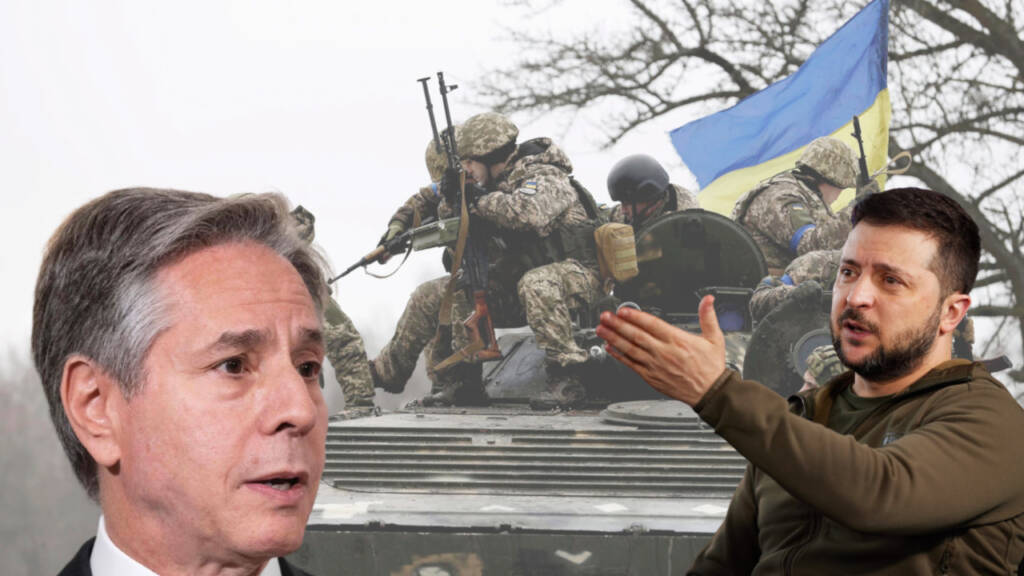The West’s stance on Ukraine’s counteroffensive has shifted notably since last year’s G20 summit. While initially supportive and resolute in confronting Russia, Western perspectives have evolved. The stark change in tone is apparent, with the West moving away from direct condemnation of Russia to characterizing the conflict as a “War in Ukraine” rather than a “War against Ukraine.”
The G20’s Balancing Act on Russia
The recent G20 summit in India has brought Western nations’ stance on Russia’s role in the Ukraine conflict into question. The summit concluded with a 35-page communiqué that faced criticism for its lack of specific reference to Russia’s role as an aggressor in the war on Ukraine. Ukraine’s Foreign Ministry spokesperson, Oleg Nikolenko, expressed disappointment, stating that the G20 had “nothing to be proud of” regarding the omission of a denunciation of Russia.
However, Western leaders defended the outcome. British Prime Minister Rishi Sunak hailed the document as a “good and strong outcome,” and European officials echoed this sentiment, emphasizing that it did not change their position on the matter. Japanese Prime Minister Fumio Kishida also viewed the communiqué as “meaningful.”
This clash of views underscores the dilemma that has overshadowed the G20 gathering: Should the summit focus on achieving consensus among all members, even at the expense of a comprehensive denunciation of Russia’s actions, or should the U.S. and European members continue to openly condemn Russia’s aggression against Ukraine?
In the end, the West chose the former approach, prioritizing unity within the G20 over a more forceful public denunciation of Russia. Critics pointed out that the phrase “aggression by the Russian Federation against Ukraine,” which appeared in the conclusions of the previous G20 summit in Bali, was notably absent from the New Delhi declaration. The Bali communiqué had only stated that “most” members agreed with the G20 stance on the Ukraine conflict.
Read More: Zelensky’s counter offensive against Russia ends up in a major debacle
This shift in Western posture towards Russia at the G20 summit has raised questions about the extent to which Western nations are willing to confront Russia’s role in the Ukraine conflict and the diplomatic choices made to maintain unity within the G20.
West’s U-Turn on Russia
Western powers, which vocally condemned Russia’s aggression in Ukraine during the previous G20 summit in Bali, have notably shifted their stance. The draft declaration from that earlier summit showed that most G20 members strongly denounced Russia’s war in Ukraine. They used strong language to deplore Russia’s aggression and demanded its immediate withdrawal from Ukrainian territory, emphasizing the human suffering and its adverse effects on the global economy.
During that summit, the Ukraine conflict took center stage, overshadowing the primary focus on global economic risks. However, the tone and approach regarding Russia’s role in the conflict have shifted significantly in the recent G20 summit. Western powers, which once condemned Russian aggression in Ukraine, have become noticeably quieter on the issue, raising questions about the evolution of their stance in international forums like the G20.
Blinken’s Diplomatic Shift in Kiev
Moreover, on September 6, Secretary of State Antony Blinken embarked on an unusual visit to Kiev, marking a departure from his previous rhetoric. Unlike previous visits, there was a notable absence of confrontational language towards Russia or President Putin. Instead, Blinken’s focus shifted towards addressing the human suffering caused by the Ukraine conflict, Ukraine’s post-conflict recovery as a democratic nation, and the reconstruction of its economy. He repeatedly emphasized that his visit was at President Biden’s direction.
Notably absent were any bold statements about liberating Crimea, taking the fight to Russia, or demanding the withdrawal of annexed territories. During a joint press availability with Ukrainian Foreign Minister Dmytro Kuleba, Kuleba mentioned substantive discussions on providing long-range rockets (ATACMS) to Ukraine, but Blinken did not delve into this topic.
What set this visit apart was its extension into a second day, a rare occurrence for Blinken. While his first day involved meetings with Ukrainian officials, including President Zelensky and Prime Minister Shmigal, the second day’s itinerary remained open, suggesting the visit was for more in-depth discussions. This shift in tone and approach raises questions about evolving U.S. policy regarding the Ukraine conflict and its diplomatic strategies with Russia.
Western Confidence in Ukraine Wanes
Ukraine’s much-anticipated counteroffensive against Russia has faced substantial challenges and failures. Despite the initial optimism and Western pressure to launch the offensive, it has resulted in significant losses of Western-supplied military equipment. President Zelensky’s denial of these setbacks contrasts with President Putin’s acknowledgment of Ukraine’s military losses.
The counteroffensive has failed to make substantial progress on Russian-controlled territory, raising questions about the effectiveness of Western support and Ukraine’s military preparedness. This situation underscores a stark contrast between the rhetoric surrounding the offensive and its actual military outcomes.
Read More: Mutiny unfolds Ukraine as Military Rebels against Volodymyr Zelensky
Given these challenges and the mixed results, it’s evident that the West did not prioritize the Ukraine conflict at the recent G20 summit, signifying a shift in its stance compared to previous summits. The focus on other global issues and the absence of strong condemnation of Russia’s actions reflect a change in priorities and the evolving dynamics of international diplomacy.
Watch More:
